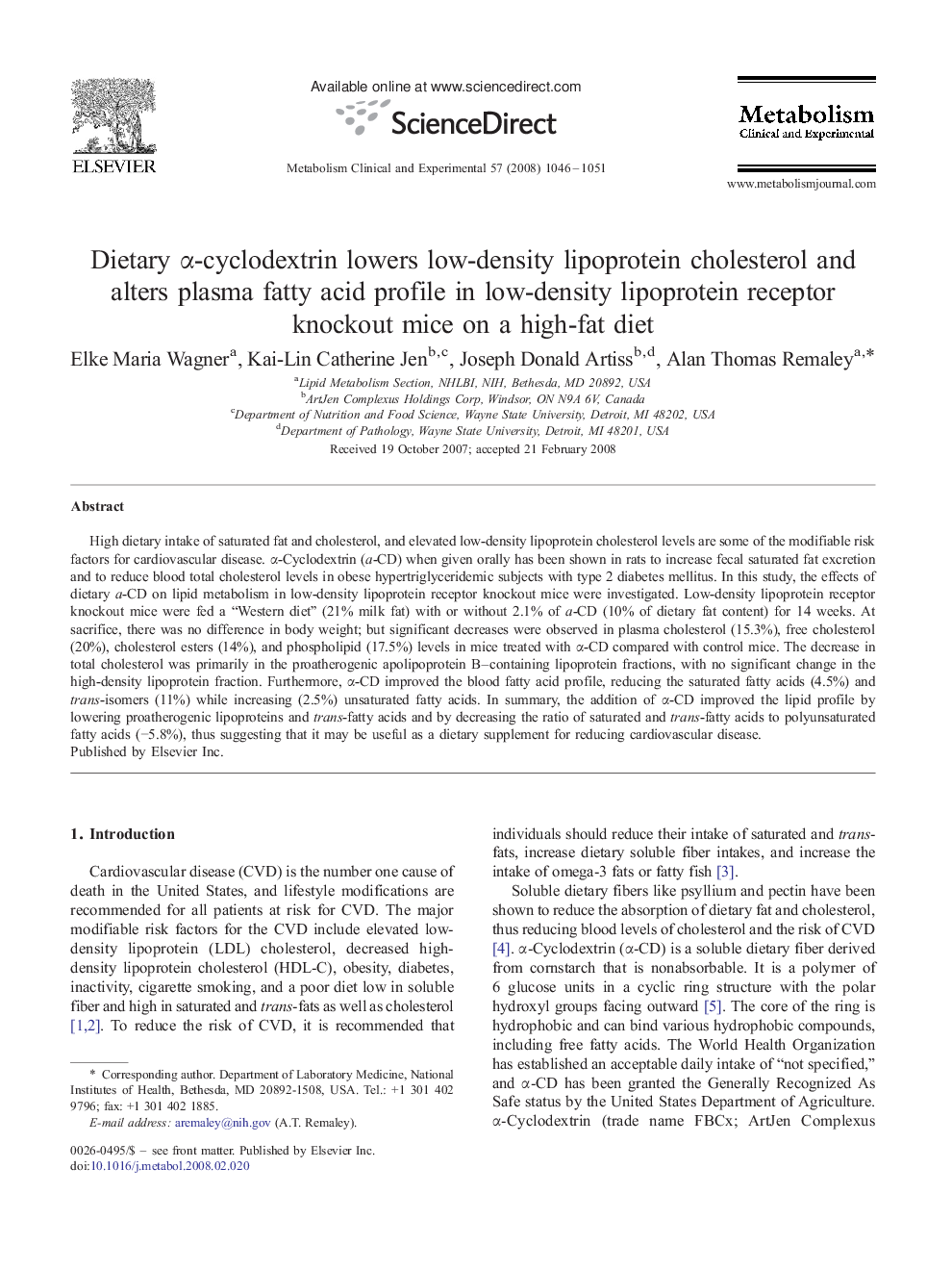| Article ID | Journal | Published Year | Pages | File Type |
|---|---|---|---|---|
| 2806943 | Metabolism | 2008 | 6 Pages |
High dietary intake of saturated fat and cholesterol, and elevated low-density lipoprotein cholesterol levels are some of the modifiable risk factors for cardiovascular disease. α-Cyclodextrin (a-CD) when given orally has been shown in rats to increase fecal saturated fat excretion and to reduce blood total cholesterol levels in obese hypertriglyceridemic subjects with type 2 diabetes mellitus. In this study, the effects of dietary a-CD on lipid metabolism in low-density lipoprotein receptor knockout mice were investigated. Low-density lipoprotein receptor knockout mice were fed a “Western diet” (21% milk fat) with or without 2.1% of a-CD (10% of dietary fat content) for 14 weeks. At sacrifice, there was no difference in body weight; but significant decreases were observed in plasma cholesterol (15.3%), free cholesterol (20%), cholesterol esters (14%), and phospholipid (17.5%) levels in mice treated with α-CD compared with control mice. The decrease in total cholesterol was primarily in the proatherogenic apolipoprotein B–containing lipoprotein fractions, with no significant change in the high-density lipoprotein fraction. Furthermore, α-CD improved the blood fatty acid profile, reducing the saturated fatty acids (4.5%) and trans-isomers (11%) while increasing (2.5%) unsaturated fatty acids. In summary, the addition of α-CD improved the lipid profile by lowering proatherogenic lipoproteins and trans-fatty acids and by decreasing the ratio of saturated and trans-fatty acids to polyunsaturated fatty acids (−5.8%), thus suggesting that it may be useful as a dietary supplement for reducing cardiovascular disease.
